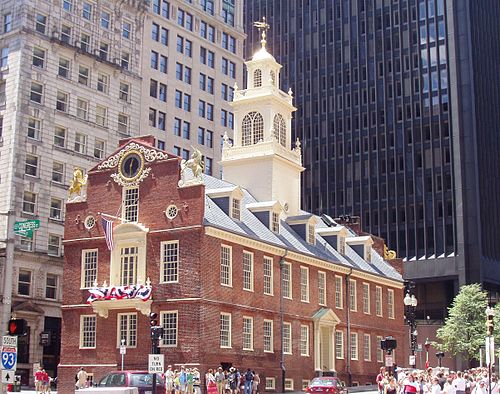
On May 19, 1780, an extraordinary event known as "New England's Dark Day" unfolded in the region. This peculiar phenomenon left a lasting impact on the collective memory of New England, sparking intrigue and speculation about its cause and significance. In this article, we delve into the historical occurrence of the Dark Day and explore its historical and cultural significance.
The Dark Day Phenomenon: On that fateful day, New England was shrouded in an unprecedented darkness that persisted throughout daylight hours. Witnesses at the time described an eerie and ominous atmosphere, where the sun's light was obscured, leaving the region in an unsettling gloom. The sudden darkness puzzled and frightened the inhabitants, who searched for answers amidst the unusual event.
Scientific Explanations: Various scientific theories have been proposed to explain New England's Dark Day. Some researchers attribute the phenomenon to a combination of dense smoke and fog caused by extensive forest fires, while others suggest volcanic activity or unusual atmospheric conditions. These scientific explanations provide insights into potential causes, yet the exact reason behind the event remains subject to debate.
Historical and Cultural Impact: New England's Dark Day had profound historical and cultural implications for the region. At the time, the event was met with fear and superstition, with many interpreting it as a sign of impending doom or divine intervention. The Dark Day influenced religious beliefs, prompting individuals to reevaluate their faith and question the world around them. It also ignited discussions on natural phenomena and the boundaries of human understanding.
Literary and Artistic Representations: The Dark Day of May 19, 1780, inspired numerous literary and artistic representations. Poets, writers, and painters sought to capture the eerie atmosphere and convey the emotional impact of the event. The Dark Day became a subject of fascination for artists who explored its symbolism and potential underlying meanings. These creative expressions serve as a testament to the lasting impact of the event on New England's cultural identity.
Legacy and Continued Interest: Although centuries have passed since New England's Dark Day, its legacy endures. Historians continue to study the event, seeking to uncover additional evidence and insights into its causes. The Dark Day serves as a reminder of the region's rich history and the enduring curiosity surrounding unexplained phenomena. It remains a topic of interest for both scholars and the general public, fueling ongoing discussions and exploration.
Conclusion: New England's Dark Day on May 19, 1780, remains an enigma that captivates the imagination. As the centuries pass, the event continues to evoke wonder and intrigue, reminding us of the mysteries of the natural world and the enduring impact of historical anomalies. The Dark Day stands as a testament to the resilience and curiosity of humanity in the face of unexplained phenomena.
Urban~commonswiki, CC BY-SA 3.0, https://fr.wikipedia.org/wiki/Nouvelle-Angleterre#/media/Fichier:Old_State_House_Boston_Massachusetts2.jpg


0 comments: